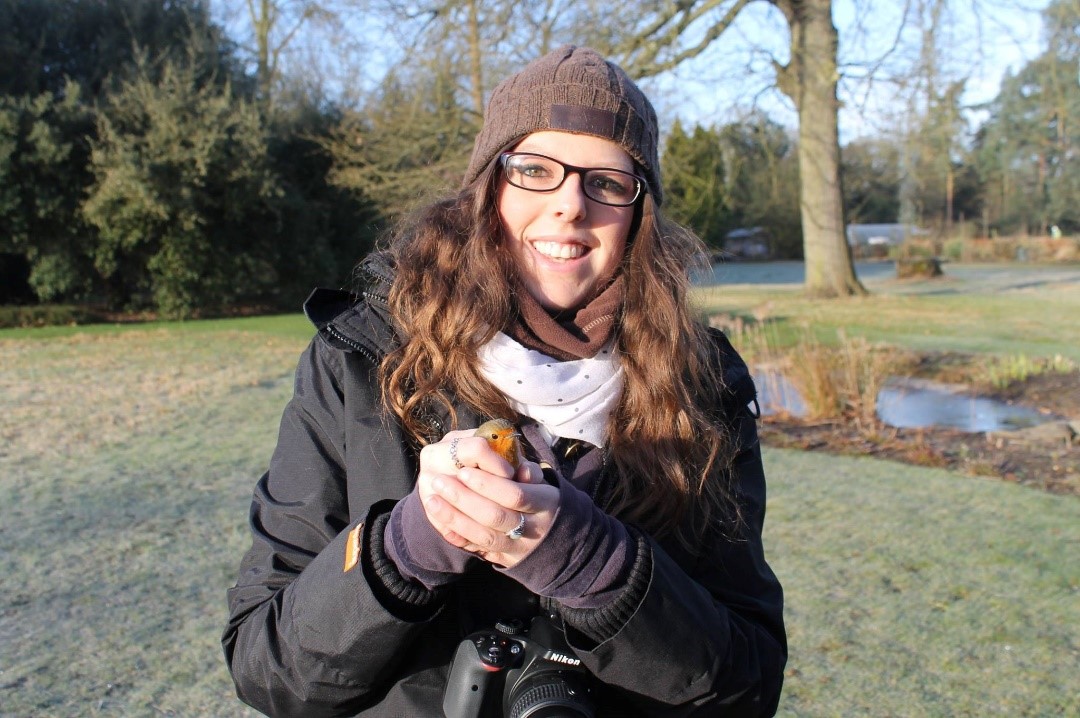 Dr Vicky Boult (@vlboult), University of Reading, is taking part in Soapbox Science Reading on 8th June 2019 talking about: “An elephant’s appetite”.
Dr Vicky Boult (@vlboult), University of Reading, is taking part in Soapbox Science Reading on 8th June 2019 talking about: “An elephant’s appetite”.
Q: Vicky, how did you get to your current position?
I have always been fascinated by wildlife. It led me to study Zoology as an undergrad at the University of Southampton. I learnt a lot during this time, but the one thing that bought me to where I am today was studying the feeding behaviour of elephants in South Africa. It instilled in me a desire for research, for uncovering new knowledge and for using this knowledge to create a better world. I therefore chose to keep studying, this time a masters degree in Wildlife Management and Conservation at the University of Reading. Again, I learnt a lot and became even more inspired. And just as I was worrying about what to do next, I saw a PhD studying elephants advertised (also at Reading). I jumped at the opportunity and got offered the position. Never was the learning curve so steep, but I pushed through and came out the other side as a well-equipped scientist! I’m currently a post-doc in Meteorology at Reading, using many of the skills I learnt during my PhD to support agricultural and humanitarian decision-making in Africa. I hope at some point in the future to pull together my passion for wildlife and my new-found understanding of meteorology. Watch this space…
Q: What, or who, inspired you to get a career in science?
My inspiration comes from three exceptional ladies. Firstly, from my Mum, who is a chocolate sensory scientist! She is incredibly brilliant at what she does and has always just got on with it. I’m very proud to be her daughter and to have inherited her drive. Second, is my friend and mentor, Heike Zitzer. She welcomed me wholeheartedly into her world of elephants back in 2013 and opened my eyes to just how incredible these animals are. With Heike I found my passion. And finally, and maybe you’ll laugh, from a very special matriarch of a 50-strong elephant family, Antares. Antares taught me that women can be kind and caring and also strong and brave. This lady is a great leader and in her I found who I hope to be.
Q: What is the most fascinating aspect of your research/work?
I love studying animals as individuals. Each elephant I have come to know has their own personality, their own likes and dislikes, and their own friendships. For instance, Shayisa is the dominant male but is a total gentleman. Lucky is relaxed, Khumbula is curious, Ntini is a good mentor and Kohlewe has short-man syndrome! By considering animals as individuals, we can follow them throughout their lives and understand so much more about what makes them, them. It’s fascinating to get to know these animals as individuals, and I feel very privileged to have done so.
Q: What attracted you to Soapbox Science in the first place?
I am a passionate conservationist and am determined to secure coexistence between people and wildlife. Throughout my career I have worked actively to identify threats facing biodiversity and to propose practical solutions. Yet increasingly I recognise that successful conservation must first consider people. That’s why I believe that communication is a fundamental tool in a conservationist’s toolkit. Through communication we can raise awareness of the threats facing our planet, we can discuss solutions which balance the needs of people and wildlife, and we can inspire the change that is so urgently needed in the world. Soapbox Science will give me a platform upon which I will not only share my knowledge about all-things-elephant, but also my passion in the hope that people will learn and love a little bit about elephants.
Q: Sum up in one word your expectations for the day
Sharing – I hope to share my excitement about all-things-elephant, and I hope others will share with me their own experiences and perspectives.
Q: If you could change one thing about the scientific culture right now, what would it be?
I had a great network of peers throughout my PhD, and the team mentality – going through the same challenges together (and coming out the other side!) – was invaluable. I would love to see this team spirit extend throughout science, replacing the competitiveness which is commonplace. It’s tricky, what with competition for jobs and funding, but we all face the same challenges working in science and many of us are in it for the same reasons. I think tackling it as a team and being supportive of our peers would greatly improve the working atmosphere, and probably the productivity, of science!
Q: What would be your top recommendation to a woman studying for a PhD and considering pursuing a career in academia?
It’s easy to get bogged-down by the seemingly endless bad experiences of women in science. But, there are more opportunities than ever for women in science. Soapbox Science is a great example, giving female scientists a platform on which to share their hard-earn experience. My advice is to focus on the possibilities and your potential rather than the challenges. If you have the passion, the drive and determination for science, you can do it. You are a scientist. Believe it, and so will others.
